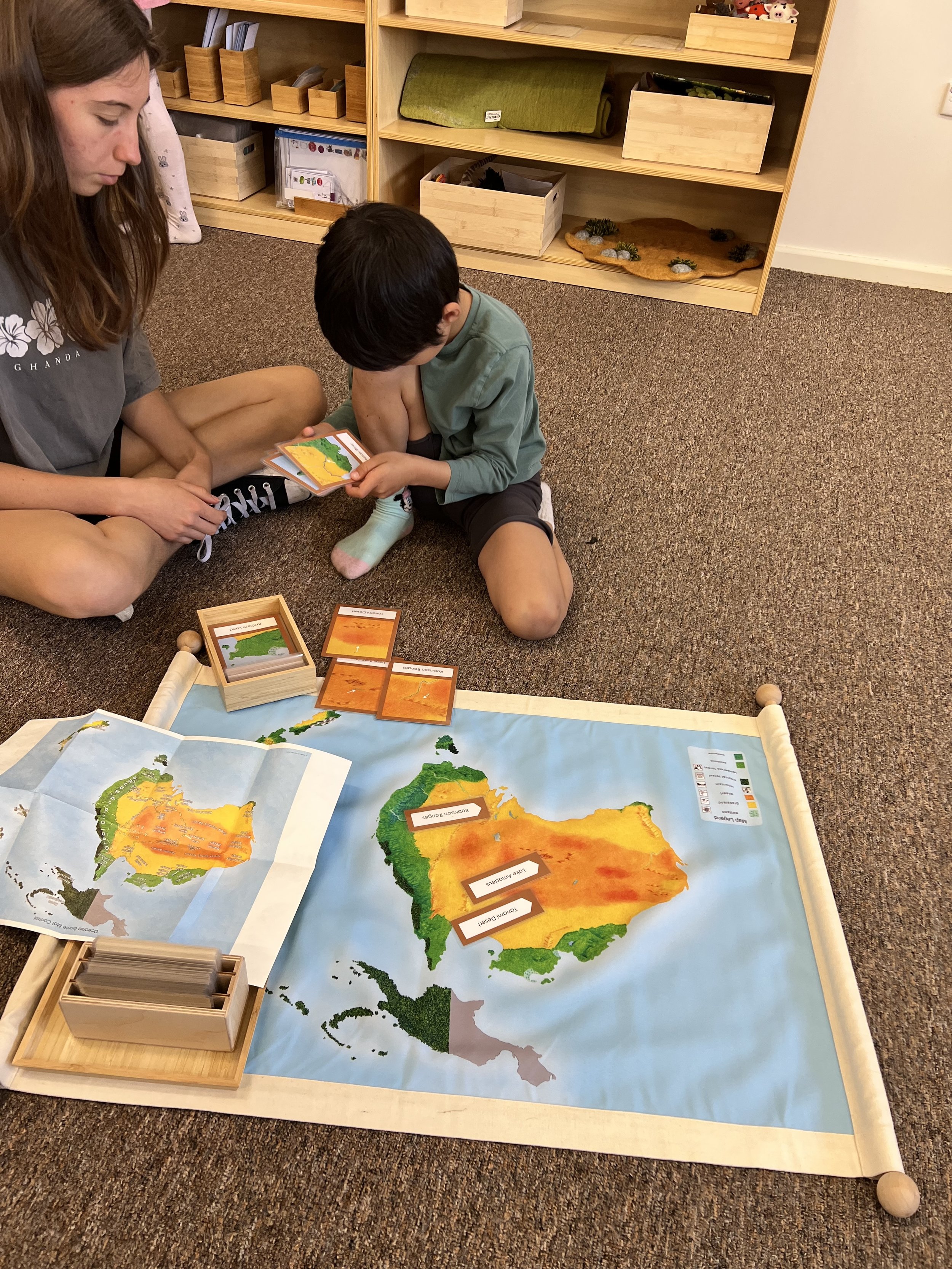Cycle 2 - Karak
Building knowledge through imagination, collaboration, and discovery.
Montessori Primary Education is a natural continuation of the Children’s House experience. Having established physical independence in the early years, the 6–9 child now embarks on a journey toward intellectual and moral independence. This stage of development, the beginning of the second plane: is a time of exploration, imagination, and growing social awareness.
Children in this cycle are driven by curiosity and wonder. They are full of “why” questions as they seek to understand how things work and how everything connects. With vivid imaginations and a strong sense of fairness and justice, they begin to explore not only academic ideas but also moral ones, asking what is right, fair, and kind. Their social world expands as they form close friendships and discover the value of belonging to a group and contributing to a community.
A Curriculum that Connects Everything
The Montessori 6–9 curriculum nurtures this expanding worldview through Cosmic Education, a holistic approach that helps children see the interconnectedness of all things. Learning begins with the Great Stories, a series of imaginative and inspiring lessons that introduce the origins of the universe, the coming of life, the development of humans, and the gifts of language and mathematics. These stories spark wonder and provide a framework for exploring history, geography, science, and the arts.
Within this context, children receive explicit instruction in literacy and mathematics, balanced with opportunities to think critically, work creatively, and develop social and ethical understanding. The classroom environment continues to offer hands-on, concrete materials, while also supporting the gradual move toward abstraction as children begin to reason and apply ideas independently.
Learning Through Exploration and Connection
In Cycle 2, children begin to make meaningful links between the different areas of study. They move from exploring geometry and geography through sensorial materials to understanding these as distinct yet connected fields of knowledge. Reading, writing, and numeracy continue to develop, supported by individualised lessons and small group work that allow each child to progress at their own pace.
The Montessori environment encourages children to take ownership of their learning. They plan their work, collaborate with peers, and reflect on their progress, nurturing responsibility, initiative, and discipline. Through this freedom within structure, they develop the confidence and motivation that will carry them through their later years of schooling.
Guided by Observation and Individual Progress
Montessori educators carefully observe and guide each child, offering lessons at the right moment to meet their developmental and academic needs. Progress is closely monitored to ensure that every child experiences challenge, success, and joy in learning.
In addition to continuous formative assessment, children are gradually introduced to standardised assessments, including participation in the Year 3 NAPLAN, as a practical life skill. At Casa Mia, these experiences are framed positively: as opportunities to practise self-management, resilience, and confidence in sharing what they know.
A Community of Imaginative Thinkers
By the end of the Cycle 2 journey, children have developed strong academic foundations, a growing moral compass, and a love of discovery. They understand that learning is not confined to one subject or moment, it is an ongoing process of connecting ideas, experiences, and people.
As they prepare to move into Cycle 3, they do so with curiosity, compassion, and the intellectual independence that marks the true Montessori learner.

